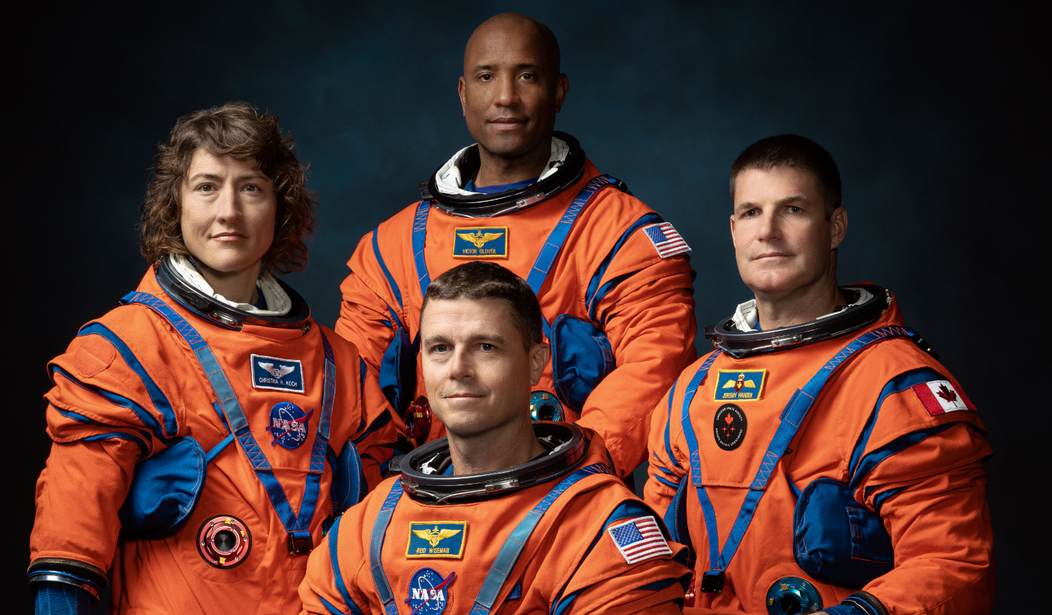On Monday morning, NASA, in conjunction with the Canadian Space Agency (CSA), announced the four astronauts who will venture around the moon aboard the Orion spacecraft on the Artemis II mission in the fall of 2024.
Those astronauts — three Americans and one Canadian — are:
- Christina Koch, Mission Specialist — She is an engineer who has also worked on scientific missions in the Arctic and Antarctic and in American Samoa. She holds the record for the longest spaceflight by a woman. In her speech, she explained how their mission will play out.
- Jeremy Hansen, Mission Specialist — He has served as both a CSA astronaut and as an aquanaut involved in deep ocean exploration. He will be the first Canadian to orbit the moon, and he thanked NASA for leading by partnering with international partners.
- Victor Glover, Pilot — He served in the U.S. Navy and as the pilot of the first operational SpaceX flight to the International Space Station and will be the first black man to orbit the moon. In his speech, he thanked God and the crew’s families for making their success possible.
- Reid Wiseman, Commander — He is a Navy veteran who served as Chief of the Astronaut Office from 2020 to 2022 when he returned to the active flight rotation. Like the rest of the crew, he graciously thanked his family and the families of the other crew members. He repeated the three words that he says defined the crew’s efforts: “We are going!”
It’s worth pointing out that all four of the Artemis II astronauts were born after men last walked on the moon.
For Our VIPs: Artemis I Was a Complete Success, but About That Followup Mission…
Not a VIP member? Click here to become one!
The first unmanned mission, Artemis I, was a success last year, but the long delay for Artemis II isn’t encouraging. NASA could be waiting so long because of caution — in other words, it could be a sign that the adventurous spirit that guided the U.S. space program through Mercury, Gemini, and Apollo is a thing of the past.
But there could be another factor in the long wait for the next mission, and it’s one that Vodkapundit touched on shortly after Artemis I.
“NASA has got to move far, far away from the slow/expensive/disposable launch mindset,” he wrote. “Artemis I performed so well — and so did SLS, years late and ten billion or so over budget — that it might very well delay NASA’s day of reckoning.”
Delays are unacceptable. These days, we’re in a cold war in all but name with China, and that includes a space race. As I wrote in January:
…it’s not at all difficult to imagine China using the moon, Mars, or a space station for nefarious purposes, even at a whim. That’s why it’s important for the U.S. to step up its game in this space race.
Congress agreed to most of NASA’s funding requests in the recent budget, but time is more important than money. Nelson says that Artemis II can happen “within two years” and that “hopefully we can speed that up.” But what can the Chinese do while we fool around with the Artemis program for months at a time?
NASA should partner with private space ventures like SpaceX and Blue Origin. Anything that can buy time and build efficiencies into the space program will help the U.S. defeat China. It’s important, and we can’t fall behind.
Regardless of the timeline of Artemis II, all eyes will be on these four astronauts (and everyone supporting them) as the mission draws closer. We must not fail. I’m praying for this crew to do all of us proud.










Join the conversation as a VIP Member